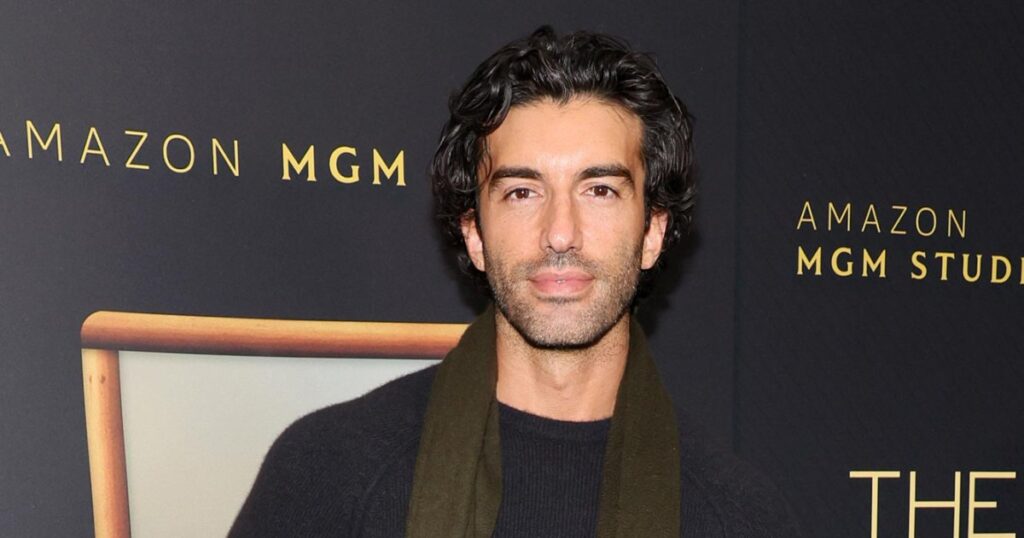
Director Justin Baldoni’s religious beliefs are reportedly playing a part in his ongoing legal drama with It Ends With Us costar Blake Lively.
Baldoni, 41, is a member of the Baha’i faith, a religion founded in the 19th century that focuses on the unity of humanity and the elimination of prejudice. Both of the directors’ parents converted to Baha’i before he was born. His religious beliefs, however, allegedly played a role in the on set drama between him and Lively, 37, during the production of It Ends With Us.
In Lively’s initial December 2024 sexual harassment lawsuit against Baldoni, the actress claimed she felt “alarmed” upon learning the actor cast as the doctor in her character’s birth scene, Adam Mondschein, was Baldoni’s “best friend.” A feature published by The Hollywood Reporter on Friday, February 21, noted that Mondschein, like Baldoni, was a member of the Baha’i community as well. (Lively’s December 2024 sexual harassment lawsuit against Baldoni does not mention the religion by name.)
Per THR, a source who worked on Baldoni’s 2019 film Five Feet Apart claimed the director “talk[ed] about his religion a lot” on set, adding, “This had shades of Scientology but with less of the prominence and people hovering at all times.”
Baldoni’s response to the allegations here – can be one or two sentences max
Keep scrolling to find out more about the Baháʼí Faith:
When Did Bahá’í Start?
The Baha’i Faith was established in Iran under the Universal House of Justice in 1963, the same year that founder Baháʼu’lláh claimed to be the prophet foretold by the Báb, an Iranian religious leader who died in 1850. Per the religion’s official website, the origins of the Baha’i Faith began in 1819, the same year the Báb was born.
The Bahá’í World News Service reports that there are currently more than 5 million members around the world. Besides Baldoni, other Bahá’í celebrities include Rainn Wilson and Penn Badgley.
What Is the Universal House of Justice?
Established in 1963, the Universal House of Justice is the elected head and international governing council of the Baháʼí Faith. The functions of the body are defined by Baháʼu’lláh, which cover how to implement Baháʼí laws, teaching and education, addressing social issues and taking care of the weak and poor.
Per the official website, the Universal House of Justice “is charged with applying the Bahá’í teachings to the requirements of an ever-evolving society.” Baháʼu’lláh’s guidelines for the council — the members of which are elected — were further clarified by his son, Abdu’l-Bahá, after his death, who wrote that the “equality of men and women is an established fact.”
Despite the so-called established fact, the website notes that membership for the Universal House of Justice is men only.
“While this may be surprising, it is a provision that was ordained by Bahá’u’lláh Himself,” it reads. “Abdu’l-Bahá has stated that its wisdom will be clearly understood in the future. Because the Bahá’í Writings are filled with unequivocal statements about the equality of men and women, however, the question of male membership of the Universal House of Justice can in no way be regarded as a sign of the superiority of men over women.”
What Do Baha’is believe?
A pillar of the Baha’i Faith focuses on teaching the essential worth of all religions and the unity of all people. Per the official website’s overview, their beliefs address what are called “essential themes” including the “oneness” of God, religion and humanity, harmony between religion and science, equality of the sexes and the importance of education.
Bahá’ís also believe in the “inherent nobility of the human being,” the “development of spiritual qualities,” the “integration of worship and service,” with particular importance paid to the “dynamics of the relationships that are to bind together individuals, communities, and institutions as humanity advances towards its collective maturity.”
What do Bahá’ís do?
For a Bahá’í, the purpose of the faith is to “inspire individuals and communities as they work to improve their own lives and contribute to the advancement of civilization,” per the website, which also states that many followers have “sought to apply Bahá’í principles to their lives and work.”
Bahá’ís are encouraged to better their communities, sometimes through volunteering and outreach, all with the intention of “serving humanity and refining their inner lives.” A lot of focus is paid on the betterment of the “human soul” and working toward the “realization of Bahá’u’lláh’s stupendous vision for humanity’s coming of age.”
Additionally, as part of their devotion, followers are encouraged to take a pilgrimage to the religion’s holy site in Haifa, Israel. Baldoni shared a snapshot from his own pilgrimage via Instagram in December 2022, writing, “So grateful to be back in Haifa visiting the #bahai holy land on a three day pilgrimage. Praying in the Shrines of `Abdu’l-Bahá and The Báb was the spiritual cleanse I needed. Overflowing with gratitude tonight.”
Do Bahá’ís Pray?
Pilgrimages and prayer is integral to the Bahá’í Faith, “whether at the level of the individual, the community, or the institutions.” Followers are encouraged to “turn their hearts in prayer to God repeatedly throughout the day.”
The official site notes that “in addition, meetings of consultation and gatherings where friends have come together to undertake one or another project commonly begin and end with prayers.” Bahá’ís also host gatherings and “devotional meetings” for friends and other Bahá’ís to “unite together in prayer, often in one another’s homes,” which are meant to “serve to awaken spiritual susceptibilities within the participants, and in concert with the acts of service they perform, lead to a pattern of community life that is infused with the spirit of devotion and focused on the attainment of spiritual and material prosperity.”
According to The Hollywood Reporter’s Friday feature, a source who previously worked with Baldoni on the 2019 film Five Feet Apart claimed they had “never worked with a male director who was so worried about everyone’s emotional and mental well-being.” The source stated Baldoni had an “openness and emotionality to his style that was more typical of a woman, and it probably wouldn’t be an issue if it was a [female director] because of the preconceived notions of gender.”
However, other sources told the outlet that because Baldoni was both leading man and director of It Ends With Us, the influence of his religion on set was more pronounced, allegedly leading crew members in prayer on the first day of production where he would “ask God for guidance” before making creative decisions.







